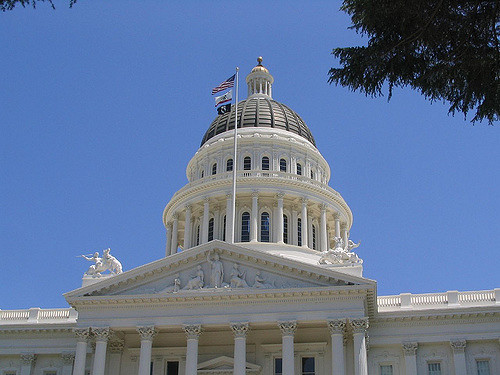In California, a coalition of seven tribes that is lobbying against the passage of proposed legislation that would legalize online poker in the state has announced that it could remove its opposition if suggested changes were inserted into the measure.
In a letter to California State Assemblyman Adam Gray, the group of land-based casino-operating tribes led by the Pechanga Band Of Luiseno Mission Indians and the Agua Caliente Band Of Cahuilla Indians, suggested amending the Democrat’s impending Assembly Bill 2863 to insert specific provisions that would punish operators that had continued to serve residents of the United States following the federal passage of the Unlawful Internet Gambling Enforcement Act (UIGEA) in 2006.
Gray recently amended his proposed legislation to institute a five-year ban on online poker providers such as PokerStars that had continued to operate post-prohibition but this can be circumvented by paying a fine of $20 million. The coalition, which also includes the Barona Band Of Mission Indians, the Yocha Dehe Wintun Nation and the Table Mountain Rancheria, wants this penalty extended to ten years with the payment element removed.
“We note that this represents a significant concession from our long-standing position of permanent disqualification of assets used in illegal activities and provides a pathway for offshore service providers to access the California market,” read the coalition’s letter to Gray.
The Lytton Band Of Pomo Indians and the Capitan Grande Band Of Diegueno Mission Indians/Viejas (Baron Long) Group Of Capitan Grande Band Of Mission Indians Of The Viejas Reservation are also involved in the coalition, which wants the ban to apply to any online gambling provider that took wagers from United States-based players after December 31, 2006.
A second suggested amendment would extend this decade-long prohibition to “any assets such as trademarks, trade names, databases or other intellectual property used for unlicensed Internet gambling” while a third would require previously banned operators to pay a fine of $60 million before being granted entry into the California online poker market. The coalition explained that all funds raised in this manner should be earmarked to help support the state’s proposed Internet Gaming Enforcement Fund, which will aim to police the market by blocking access to unauthorized sites.
Finally, the tribes declared that they would like Gray to amend his legislation’s non-severability provisions to prevent any future lawsuits from “overturning critical suitability and eligibility requirements”.
“We believe that these amendments will enable you and stakeholders to achieve their respective goals as it relates to this sweeping public policy, namely meaningful consumer protections for Californians, a new and substantial revenue source for the horseracing industry, economic opportunities for those California tribes and card clubs who wish to engage in Internet poker and potential revenue for the state,” read the coalition’s letter.
“Essentially, all of the primary purposes of your measure will be maintained with our amendments. The sole change will be that those who operated illegally in the past will face clear consequences for those actions.”


